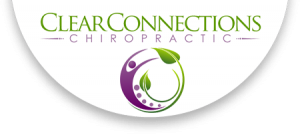Final installment of your resolutions for evolution! Remember that health is a journey and not a destination so have fun with it!
8. Eat Nutrient-Dense Protein (Quality not Quantity)
Protein is essential for your health as it’s a structural component of enzymes, cellular receptors, signaling molecules, and a main building block for your muscles and bones. But, eating excessive amounts of protein could actually be worse than eating too many carbs. Excessive protein can stimulate two biochemical pathways that accelerate aging and cancer growth.
Substantial amounts of protein can be found in meat, fish, eggs, dairy products, legumes, and nuts. The quality of the meat you eat is just as important as the quantity. As a general rule, the best meat to consume is pastured, grass-fed, and grass-finished, ideally organically raised meats (and of course, the same goes for dairy and eggs). Wild-caught Alaskan salmon and sardines are also excellent protein sources. You can also get plenty of protein from plant foods. Consider hemp seeds (hemp hearts), chia seeds, spirulina, sprouts, and bee pollen.
9. Meditate for 5 to 10 Minutes a Day
Stress-related problems, including back pain, insomnia, acid reflux, and exacerbations to irritable bowel syndrome may account for up to 70% of the average US physician’s caseload. Such health-care expenditures are the 3rd highest in the US, after only heart disease and cancer. New research suggests, however, that such costs could be cut drastically simply by becoming more relaxed.
Both meditation and mindfulness are excellent for stress relief and relaxation, as are prayer, and keeping a gratitude journal. One simple way to incorporate such relaxation techniques into your life is to meditate first thing in the morning, even before you get out of bed, to take advantage of your mind being in a quiet zone.
10. Help Others and Be Active in Your Community
Volunteering is a simple way to help others, but it’s also a powerful way to help you. Beyond the good feelings you’ll get from donating your time, and the potential to develop new, meaningful relationships with people in your community, volunteering has a significant impact on your physical health, including a boost to your heart health.
In one study, people who volunteered for at least 200 hours a year were 40 percent less likely to develop high blood pressure than those who did not. Volunteering also gives you a sense of purpose and can even lead to a so-called “helper’s high,” which may occur because doing good releases feel-good hormones like oxytocin in your body while lowering levels of stress hormones like cortisol.
Giving back is about so much more than even that, though, as it will help you to connect with your community and contribute your time and/or talents to promoting the greater good.
Remember, most New Year’s resolutions do fail for one reason or another. So this year, try making a simple commitment to live healthier from here on out. Start slow and small, little changes can make a huge overall difference in your health. And, when you commit to a lifestyle, it’s no longer about meeting a particular goal, like losing 10 pounds. It’s about living a little bit differently, a little bit better, so that ultimately you’re happier and healthier for it.
Good Luck and Happy 2016!

